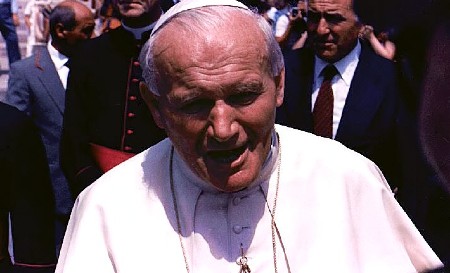Henry Holden
FREE Catholic Classes
An English priest ; born 1596; died March, 1662. Henry Holden was the second son of Richard Holden, of Chaigley, Lancashire, and Eleanor, his wife. He entered the English College at Douai under the name of Johnson, 18 Sept., 1618, where he studied till 15 July, 1623, when he proceeded to Paris, took his degree as Doctor of Divinity, and was made a professor at the Sorbonne. He also became penitentiary at Saint-Nicolas du Chardonnet and one of the grand vicars of the Archbishop of Paris. When Bishop Richard Smith fled from England in 1631 and there arose a difference of opinion between the Jesuits and the other orders, who thought the presence of a bishop in England was not advisable at the time, and the secular clergy, who took the opposite view, Dr. Holden was sent to Rome to represent the seculars and to avert the dissolution of the chapter. In 1655, on the death of Bishop Smith, the question again arose, and Holden's friend and brother-priest, Thomas White, alias Blackloe, wrote a book, "The Grounds of Obedience and Government", which gave offence to his opponents, and led to some of his other works being censured by the Holy See. Holden, who thought Blackloe had been hardly treated, undertook his defence, and thus the "Blackloist Controversy" was begun. Holden, however, did not approve of all Blackloe's opinions and persuaded him to submit and retract the teaching which had been condemned. Blackloe did this, though without satisfying his adversaries, who were also very unsparing in their denunciations of Holden, whom they described as an unlearned and rash man. This charge is sufficiently disproved by his position, not to mention his works.
In the later years of his life he took a keen interest in the famous community known as the "Blue Nuns " at Paris. The sisters were originally Franciscans, but when Cardinal de Retz, Archbishop of Paris, refused to allow Franciscans to dwell in his diocese, they obtained leave from the Holy See to change their rule to that of the Immaculate Conception of our Lady, and Dr. Holden was appointed their superior in 1661. Dr. Holden's high reputation for learning and orthodoxy, as instanced in the works of Dodd, Berington, and Charles Butler, is above dispute, though in the heat of controversy his opponents accused him of Jansenism as well as of Blackloism. But his own statement survives that he condemned the five propositions from the first, and that "in the same sense in which they were condemned by him" (the pope ). He also signed the Sorbonne's censure of Arnauld's letter to the Duke of Liancourt.
His principal works are as follows: "Divinæ Fidei Analysis, cum Appendice de Schismate" (Paris, 1652; English translation by W. G. [William Graunt], Paris, 1658). This work led to a long controversy between Holden and Serjeant on the Catholic side against the Anglicans Bramhall and Hammond; "Tractatus de Usura", published in second edition of the above (1655); "Letters to Arnauld and Feret", also published in later editions of the "Analysis"; "Answer to Dr. Laney's Queries concerning certain Points of Controversy"; "Dr. Holden's Letter to a Friend of his, upon the occasion of Mr. Blacklow (or rather T. White's) submitting his Writings to the See of Rome" (Paris, 1657); "Novum Testamentum brevibus annotationibus illustratum" (Paris, 1660); "Henrici Holden Epistola ad D.D.N.N. Anglum in qua de 22 propositionibus ex libris Thomæ Angli ex Albiis excerptis et a facultate theologica Duacena damnatis, sententiam suam dicit" (Paris, 1661); "A Letter to Mr. Graunt concerning Mr. White's Treatise de Medio Animarum Statu" (Paris, 1661); "A Check; or enquiry into the late act of the Roman Inquisition, busily and pressingly dispersed over all England by the Jesuits" (Paris, 1662); several letters were printed in Pugh, "Blackloe's Cabal" (1680).
We ask you, humbly: don't scroll away.
Hi readers, it seems you use Catholic Online a lot; that's great! It's a little awkward to ask, but we need your help. If you have already donated, we sincerely thank you. We're not salespeople, but we depend on donations averaging $14.76 and fewer than 1% of readers give. If you donate just $5.00, the price of your coffee, Catholic Online School could keep thriving. Thank you.Help Now >








 Daily Readings for Thursday, April 25, 2024
Daily Readings for Thursday, April 25, 2024 St. Mark: Saint of the Day for Thursday, April 25, 2024
St. Mark: Saint of the Day for Thursday, April 25, 2024 Prayer for Policemen: Prayer of the Day for Thursday, April 25, 2024
Prayer for Policemen: Prayer of the Day for Thursday, April 25, 2024
